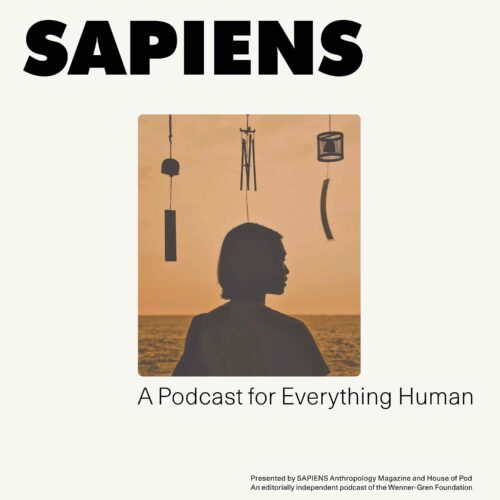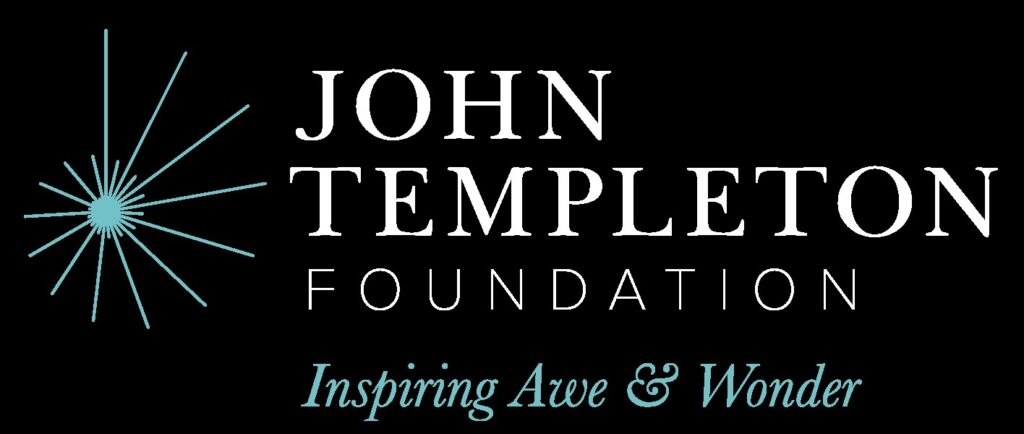Being human is complicated. We require food and shelter. We have histories to contend with. We create rituals to control fate. We steal. We fight. We kill. We love. We shape the environment to suit our needs—sometimes with terrifying results.
This season of the SAPIENS podcast embraces the diversity of human experience, digging deep into our human past and how we live today. The throughline of this season is the way in which humans use cultural beliefs and practices not only to explain the past, but also to imagine the present and future. These stories aspire to understand how cultures can guide knowledge of human truths and help all of us to become seekers of wisdom.
Join Season 5’s host, Eshe Lewis, on our latest journey to explore what it means to be human.
Season 5 of the SAPIENS podcast is part of the SAPIENS Public Scholars Training Fellowship funded with the support of a three-year grant from the John Templeton Foundation.
SAPIENS Season 5 Podcast Trailer
[opening music]
Speaker 1: Since founding the SAPIENS podcast in 2018, we’ve been testing a theory: Humans are fascinating.
Speaker 2: Tarzan has this wife, Jane, and I was so jealous of Jane. I thought she was a wimp, and I thought I’d been a much better mate for Tarzan myself. And that was when I decided to go to Africa to live with animals and learn about them and write books about them.
Speaker 3: Eratosthenes’ only tools were sticks, eyes, feet, and brains. Plus, a zest for experiment.
Speaker 4: Zora Neale Hurston’s work broke many barriers by combining research and folklore, while centering the perspectives of Black women
Speaker 1: And yet, when it comes to talking about the mind-blowing science behind being a human, sometimes we in the academic community, well, we lose people.
Speaker 5: The original machine had a base plate of prefabulated amulite surmounted by a malleable logarithmic casing in such a way that the two spurving bearings were in a direct line with a panametric fan. The latter consisted simply …
Eshe Lewis: So this past fall, in 2022, we started something new.
Speaker 6: Like, is this person down to clown? Are they willing to try and translate their work, make it funny, or make it more accessible, or make it heartbreaking? And so I’ll ask ridiculous questions, like, if the history of vaccination in America is a movie, where does it start? And trying to see if they’ll play, basically, because I think that makes the best audio.
Eshe: It’s called the SAPIENS Public Scholars Training Fellowship. Our goal was simple: teach emerging scholars from around the world how to share the stories behind their incredible work with the public.
Esteban Salmón: Hello, I’m Esteban, and I’m doing my research on Mexico City’s criminal justice system.
Katie Chiou: My name is Katie Chiou. I’m interested in foodways and domestication, and people’s relationship with chili peppers.
Adam Netzer Zimmer: Hey, I’m Adam, and my research is about how medical schools get bodies for dissection and who the people were before they got selected.
Anya Gruber: I’m Anya, and my work focuses on New England in the 17th century.
Brendane Tynes: My name is Brendane, and my research is with anti–sexual violence activists in Baltimore.
Sebastian Vacas-Oleas: I am Sebastian. I work in Amazonia. I’m focused on resource and colonial conflicts, and Indigenous peoples.
Koffi Nomedji: I’m Koffi Nomedji. I’m working on coastal erosion in Togo. Thank you.
Eshe: With us, they put down their theses and picked up a mic.
Adam: How did the skulls go from a remote island in Iceland to a museum in Massachusetts?
Sebastian: When I first started studying Mexico’s criminal justice system, I thought decisions were made carefully. I realized things are more complicated than this.
Koffi: Some years, the sea can take up to 70 feet of land. That’s pretty much the length of a tennis court.
Brendane: For people who work in domestic violence and crime in Baltimore, the city has another name: Bodymoor.
Katie: When chiles are really, really hot, they do things like irritate your mucus linings. Right? They make your heart race. And yet, that pain is coupled with pleasure, which I always found to be incredibly, I think, poetic.
Sebastian: The elders wanted to avoid a massacre, and they had one psychological weapon yet to be deployed: The shamans.
Anya: Often archeologists are lucky if they just find a few pieces of broken pottery, maybe some glass, a nail or two here and there. What was coming out of this pit was a lot different.
Eshe: My name is Eshe Lewis. I’m a cultural anthropologist and the program director of the SAPIENS Public Scholars Training Fellowship. And for our fifth season of the show, we’re traveling to Togo, Ecuador, Mexico, Peru, Iceland, and the United States to learn a little more about what makes us human from some of the humans building the future of anthropology. Coming this spring …
Eshe: What makes us human?
Speaker 6: It’s a wild ride. Brace yourself.
Speaker 7: Imagine the future.
Speaker 8: I will not be quiet.
Speaker 9: We have to start from scratch.
Speaker 10: Una de bruche aquí la mente.
Brendane: It gives me goosebumps.
Eshe: What makes us human?
Group: Let’s find out.
Eshe: SAPIENS: A Podcast for Everything Human.


































